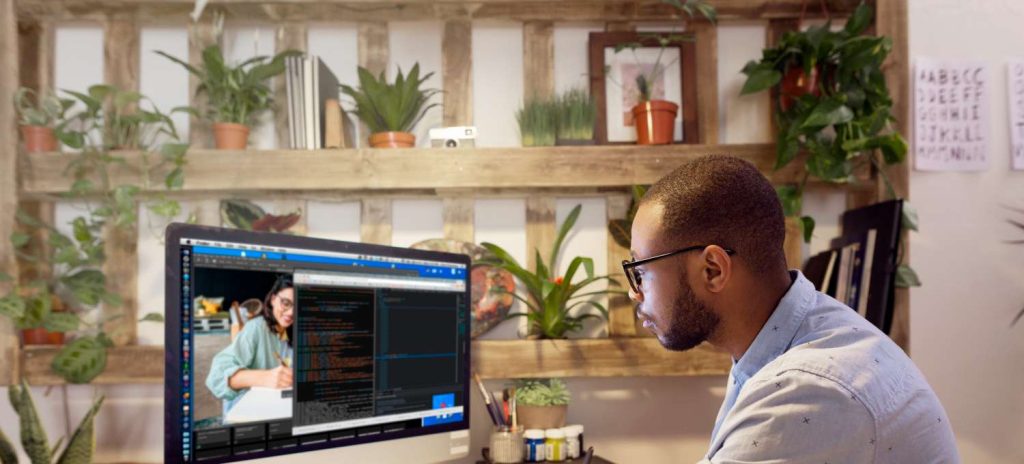
It’s convenient that you can pay your taxes abroad online, but is it also safe?
We have some bad news about that – no, it’s not. WiFi security just isn’t all that it’s cracked up to be.
We’ll tell you why that is in this article. Also, we’ll show you how to securely pay your taxes online as an expat.
Why Isn’t It Safe to Pay Your Taxes Online?
Here are the main problems with paying your taxes online:
Unsecured WiFi
What’s better than sipping your morning coffee on a terrace and doing your taxes while using the restaurant’s WiFi?
That’s definitely a relaxing scenario, we’ll give you that. But you’re overlooking one important thing – how to secure the WiFi network is (or isn’t, to be exact).
The thing that makes most public WiFi networks so appealing is the lack of a password. Unfortunately, that’s also what makes them so dangerous. No password means there’s no encryption. So anybody can spy on your traffic. And it’s obvious who’d do that – skilled hackers that want to steal your personal data. By using packet sniffers, they might be able to get their hands on your passwords, credit card numbers, and social security numbers.
Unreliable WiFi Encryption
Maybe you think you’ll be safe if you use a secured network – like your home’s network, for example.
Well, you’re definitely safer than with an unsecured public network, but not by much!
Even encrypted WiFi networks aren’t 100% safe – no matter what encryption standard is used. WPA2 (the most common type of WiFi encryption) is vulnerable to a serious cyber attack, and WPA3 has its fair share of security holes as well.
So you’re not safe even if you pay your taxes online using encrypted networks.
Fake WiFi Networks
Hackers can actually create fake networks that imitate legitimate hotspots – like your favorite coffee shop’s WiFi, for example.
If they trick you or your device into connecting to them, they’ll be able to monitor all your traffic and steal your data.
How Can You Pay Your Taxes Online and Be Safe?
There are a couple of things you can do to protect your online data. Here are our favorite security tips:
Use a VPN
VPNs are excellent security tools. You should always use one when doing your taxes online – or when doing anything else, really.
A VPN is an online service that secures your traffic by encrypting it. Translated, that means it makes all your web data unreadable. Nobody can spy on it – not your ISP, not the government, and definitely not hackers. If they eavesdrop on your connections, they’ll just see gibberish.
And here’s the best part: VPNs encrypt your traffic end-to-end. That means only the VPN app (which you install on your device) and VPN server (which you connect to using the VPN app) can decrypt your traffic.
What’s more, VPNs have ad blockers. On top of the obvious (they block ads), they also drop any connection to a malware-infected site (so hackers can’t use MITM attacks to redirect you to phishing sites).
Thanks to that, VPNs make it safe to use any WiFi network – you’ll even be safe on fake hotspots! Not that we recommend using them, of course.
But that’s not all – a VPN also hides your IP address. Websites and hackers will only be able to see the VPN’s IP address. Without knowing your IP, they won’t be able to tell what country and city you are from. Also, they won’t be able to use it to track your online movements.
Use Antivirus Protection
Hackers often use malware to take over your device. If that happens while you do your taxes, it’s obvious what will go wrong – the malicious software will steal all your personal and financial data.
While a VPN can protect you from malware to a certain extent by blocking malicious sites with ad blockers, that’s about it. It’s not designed to offer protection from direct malware infections.
For that, you need an antivirus program. It’s an app you install on your device that prevents malware infections. The moment it detects traces of malware, it quarantines it and then removes it from your device.
And antivirus programs also have features that block connections to malicious sites. So using one together with a VPN offers even more protection.
Just remember to always keep the antivirus on. Oh, and never skip an update – if you do, the antivirus won’t be able to detect new strains of malware (and 360,000 of them are detected every day!).
Use uBlock Origin
uBlock Origin is a free browser extension that works like an ad blocker (it’s arguably the best ad blocker out there because it can also block YouTube ads).
But on top of being a great ad blocker, uBlock Origin is also a really good script blocker. Basically, it stops harmful scripts from loading on the sites you visit. So there’s no risk of a malicious script taking over your browser and putting your data in danger.
uMatrix is another reliable script blocker you can use, but you recommended uBlock Origin instead because it’s more user-friendly. While uMatrix can get rid of tons of harmful ads, it can also stop sites from working properly. So you probably won’t be able to use it together with the platform you use to pay your taxes (it likely won’t work well).
What Do You Do to Protect Your Data While Paying Your Taxes?
We’d like to hear what security measures you take (besides the ones we mentioned in this article). If you use certain security tools, please mention which ones and tell us why you like them.


